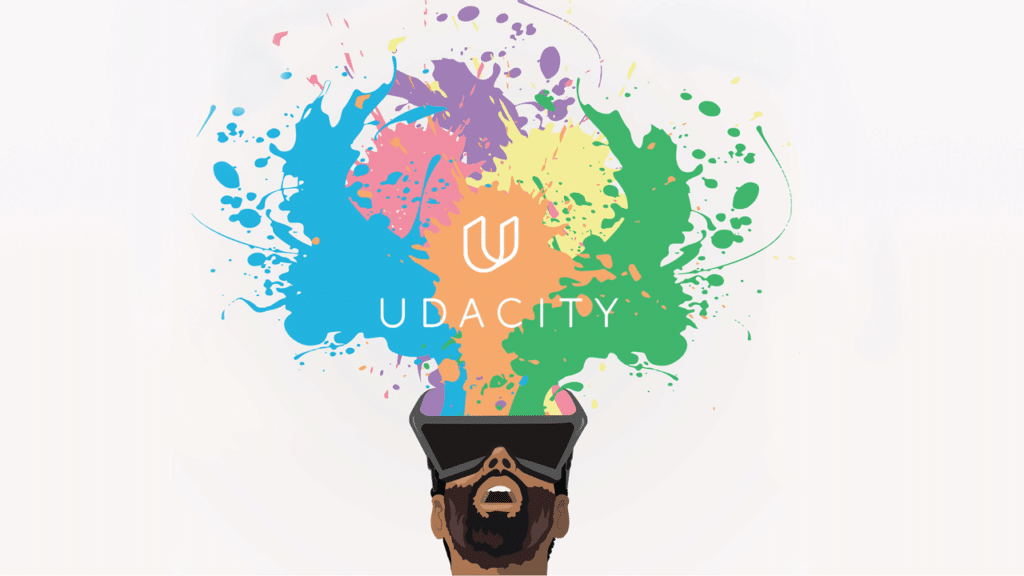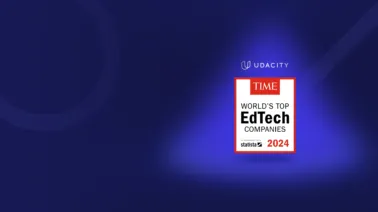Virtual reality is one of the most exciting new areas of technology, and we are thrilled to announce the VR Developer Nanodegree program today. Virtual reality is set to impact numerous industries—from gaming and movies, to education and training; from design and communication, to travel and healthcare. The technology actually allows users to go inside an experience, beyond the role of passive observer—you engage directly with the content, and act upon environments both real and imagined.
Our Program
We are working with Google VR, HTC Vive, and Upload to build a world-class curriculum that gives you the latest insights into the fast-changing world of virtual reality. Our VR environment integrates the powerful 3D engine Unity. Becoming a VR Developer is your passport to a new world of possibility, and this program will teach you the skills you’ll need to join the creative revolution.
Content creators in this space enjoy an unmatched amount of freedom to build out new ideas and applications. As a student in this program, you will learn to design and engineer compelling immersive experiences, and discover how hardware and software combine to make these experiences possible. You’ll master the latest technologies with experts from our amazing partner companies, as you prepare yourself for an exciting career in an expanding field currently enjoying +800% year-over-year job growth.
The Skills
In this program, you will learn the skills for:
- Mobile phone-based VR and Desktop VR
- Game engines
- VR design and user interaction
- 360˚ media including immersive imagery, 360˚ video and spatial sound
- Performance and ergonomics
- VR platforms, including HTC Vive, Google Cardboard, Daydream, and Oculus Rift
Through hands-on projects, you’ll master every step necessary to transform your creative ideas into publishable applications and experiences on the major platforms: Steam, Oculus, the Google Play Store, and the iOS App Store.
The Features
Every registered student will receive a limited-edition mobile virtual reality viewer to be used with their mobile phone (Android or iPhone). Students with access to a high-immersion VR setup such as the HTC Vive or Oculus Rift will be able to take advantage of an optional concentration track on “High Immersion VR” that covers advanced design and engineering topics.
The VR Developer Nanodegree program is $199 per month, and students will enjoy all the unique benefits integral to every career-path Udacity program, including:
- Specialized courses built with top industry partners.
- A learn-by-doing approach enabling students to create real products, and build professional portfolios.
- Expert project review and personalized, actionable feedback delivered within hours of submitting projects.
- Mentorship initiatives that pair students with individual mentors who answer questions, help with goal-setting, and provide guidance throughout the programs.
- Coaching, and career services.
- Access to student forums, Slack communities, and additional learning resources.
- Face-to-face learning opportunities through Udacity Connect.
As with all of our Nanodegree programs, the focus is on learning-by-doing, so the majority of your time will be spent building real experiences. You will learn how to create 3D scenes, define behaviors, and make experiences comfortable, exciting and performant on a wide range of devices.
Our Curriculum Developers
We are working closely with VR leaders to design and build the curriculum including:
Google VR
Google’s VR team has established itself as one of the most consistently innovative and successful teams in the field, creating and releasing one groundbreaking VR innovation after another. Google Cardboard alone has shipped over 5 million units, and the upcoming release of Daydream VR is one of the most anticipated launches in the VR space.
HTC Vive
Vive is a first-of-its-kind virtual reality system developed in partnership with HTC and Valve. Designed from the ground up for room-scale VR, Vive allows true-to-life interactions and experiences with its adjustable headset, two wireless controllers with HD haptic feedback, and 360˚ absolute motion tracking.
Upload
Upload is the leading news and events provider for the VR/AR industry. Upload operates a dedicated, hybrid VR/AR co-working and learning space called The Upload Collective: a place for companies, industry leaders and enthusiasts to work, learn and connect. Upload is committed to accelerating the growth of the VR/AR industry and using immersive technology to make a positive global impact.
We are also integrating the powerful 3D engine Unity into key projects and lessons within the VR development environment:
Unity
Unity Technologies is the creator of one of the most powerful and most widely distributed game engines and editors available. Millions of creators are registered with Unity, and over 1.7 billion devices are running Unity-made games worldwide. A large percentage of all VR content is created using Unity, whose platform allows you to create and easily publish content to 26 target platforms, including mobile VR, and VR and AR headsets.
The Future
As a graduate of this Nanodegree program, you will be fully prepared for a wide range of career opportunities—from joining industry leaders already innovating in the field, or helping emerging companies launch new VR initiatives, to freelancing, or even building your own startup.
Get started on the new creative revolution!
~
VR Developer Nanodegree program




